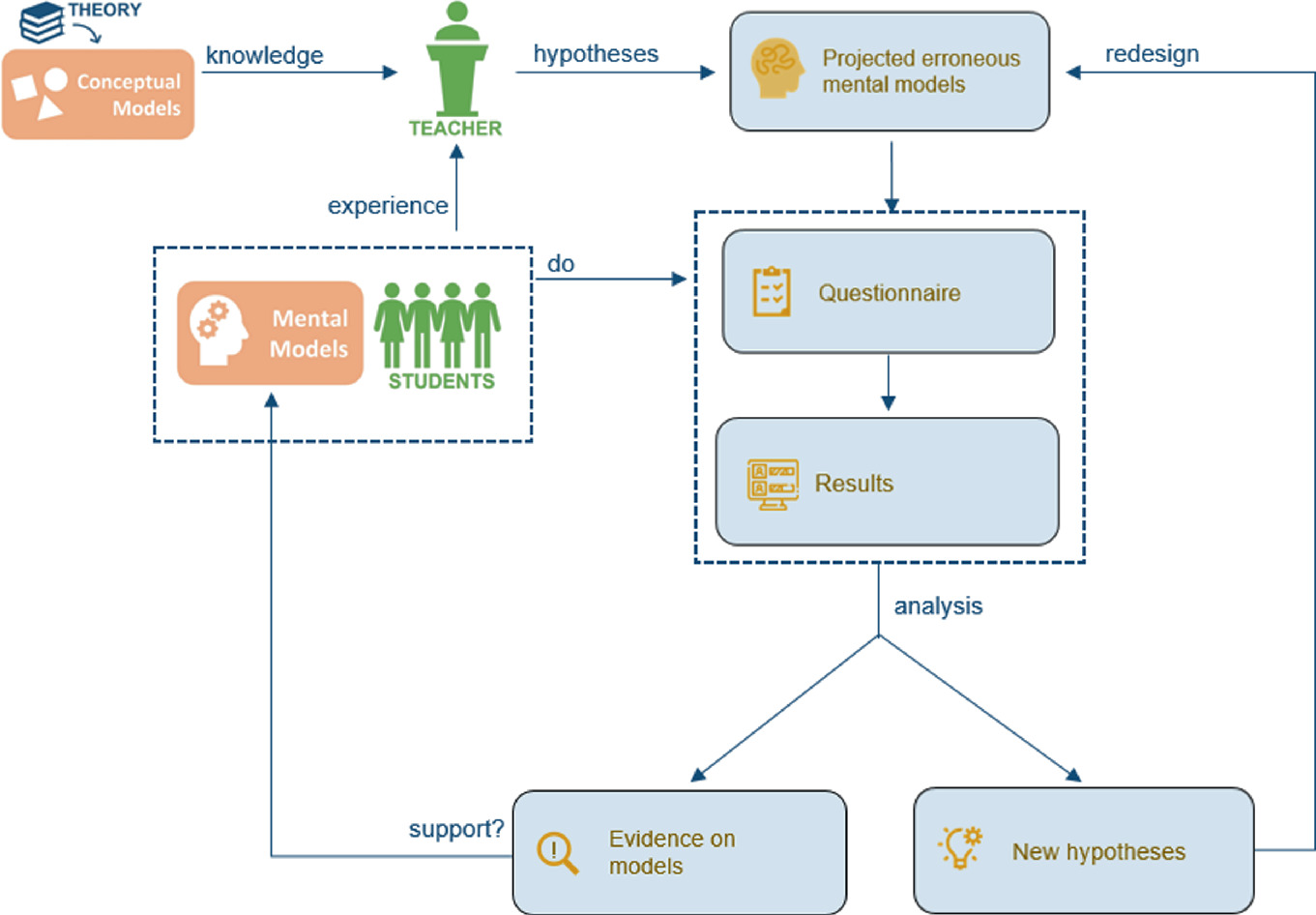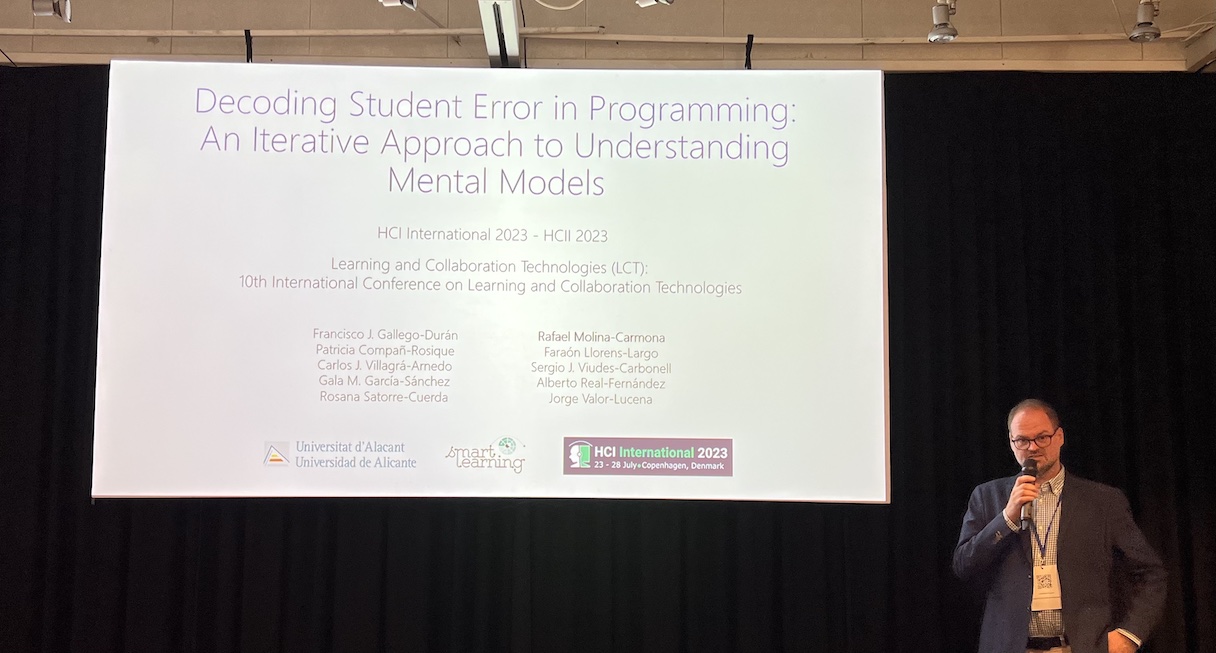Decoding Student Error in Programming: An Iterative Approach to Understanding Mental Models
Francisco J. Gallego-Durán, Patricia Compañ-Rosique, Carlos J. Villagrá-Arnedo, Gala M. García-Sánchez, Rosana Satorre-Cuerda, Rafael Molina-Carmona, Faraón Llorens-Largo, Sergio J. Viudes-Carbonell, Alberto Real-Fernández & Jorge Valor-Lucena
25th International Conference on Human-Computer Interaction (HCII 2023)
Copenhagen, Denmark
23-28 July 2023
10th International Conference on Learning and Collaboration Technologies (LCT 2023).
Lecture Notes in Computer Science book series (LNCS,volume 14040) (https://link.springer.com/book/10.1007/978-3-031-34411-4)
https://link.springer.com/chapter/10.1007/978-3-031-34411-4_18
https://doi.org/10.1007/978-3-031-34411-4_18
Abstract
In computer programming education, despite yearly changes in teaching methodologies, students still struggle to grasp the concepts. When they advance to more complex projects, gaps in their basic knowledge become evident. It seems that the knowledge they learn in the first course is forgotten or not well understood. This proposal aims to explore students’ mental models of computer programming concepts to better understand and identify any misconceptions. An iterative methodology is proposed to identify, test, analyse and evidence students’ erroneous mental models in programming. Characterising these mental models is a first step to deepen our understanding and designing strategies to help students improve them. The proposed methodology is exemplified in detail through an undergoing use case at the University of Alicante, and some early results are discussed.
Keywords
Programming, Learning, Mental Models
Cite this paper as:
Gallego-Durán, F.J. et al. (2023). Decoding Student Error in Programming: An Iterative Approach to Understanding Mental Models. In: Zaphiris, P., Ioannou, A. (eds) Learning and Collaboration Technologies. HCII 2023. Lecture Notes in Computer Science, vol 14040. Springer, Cham. https://doi.org/10.1007/978-3-031-34411-4_18

